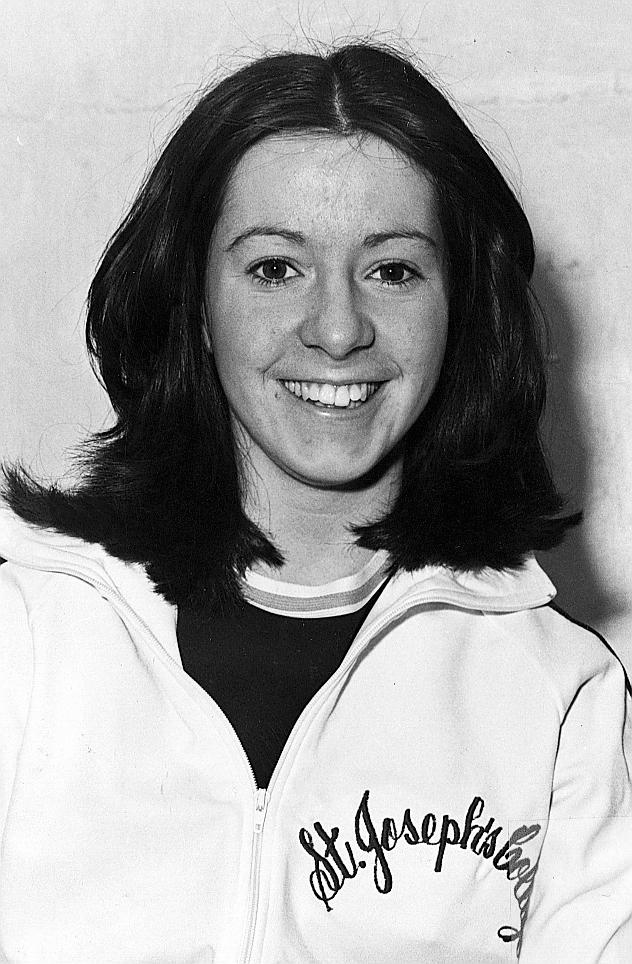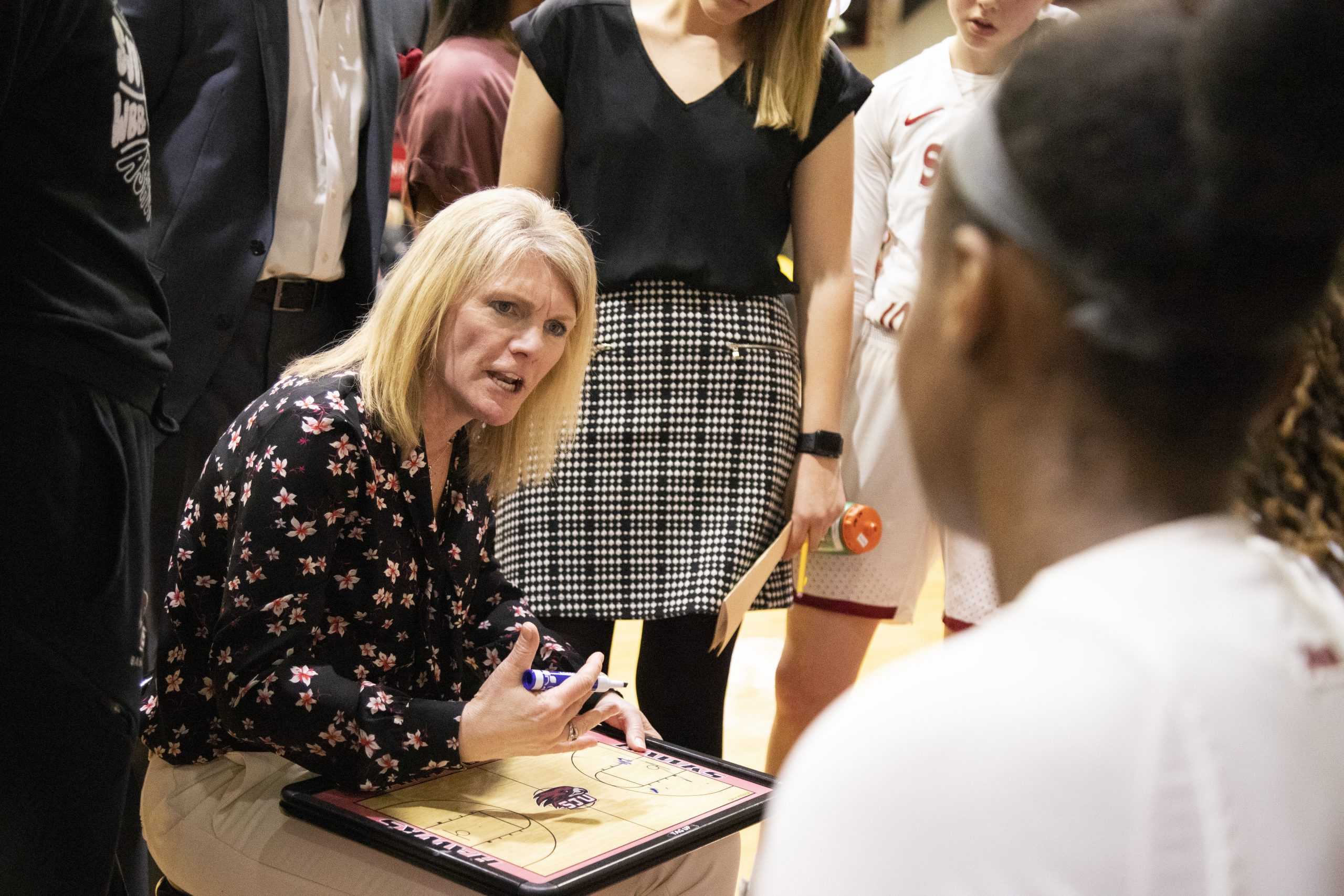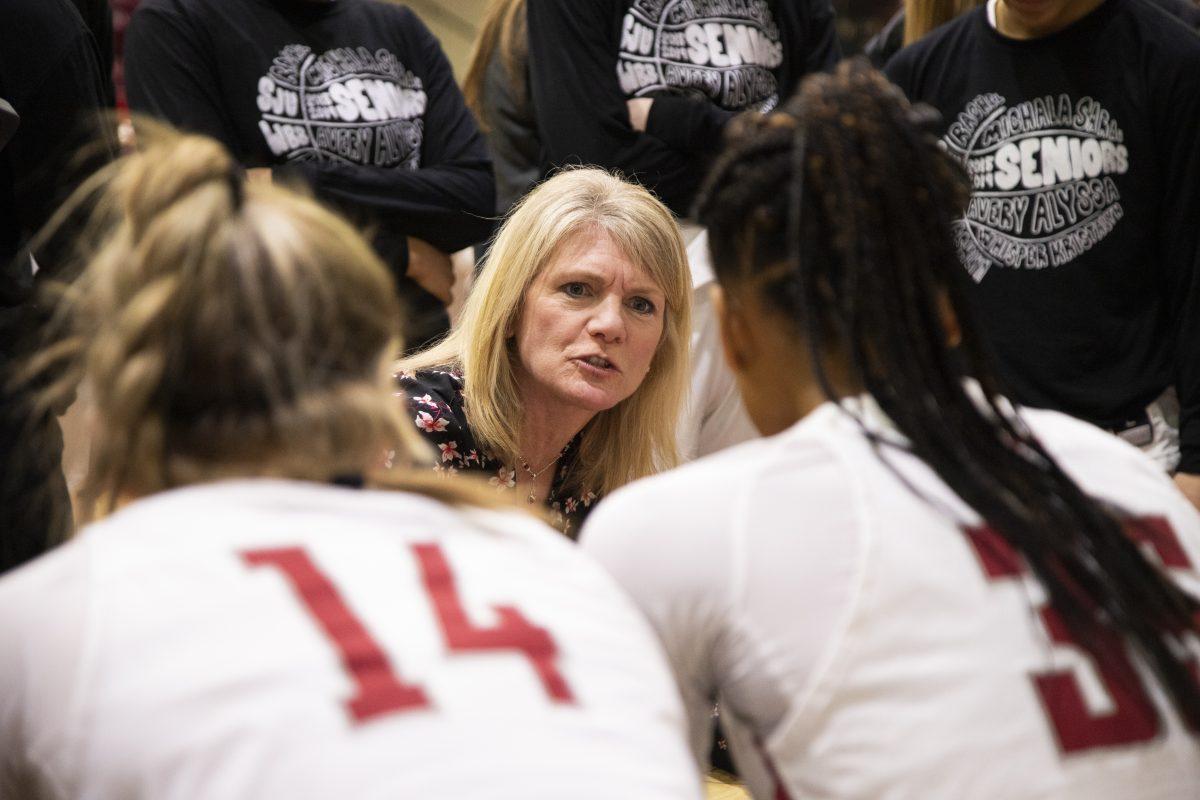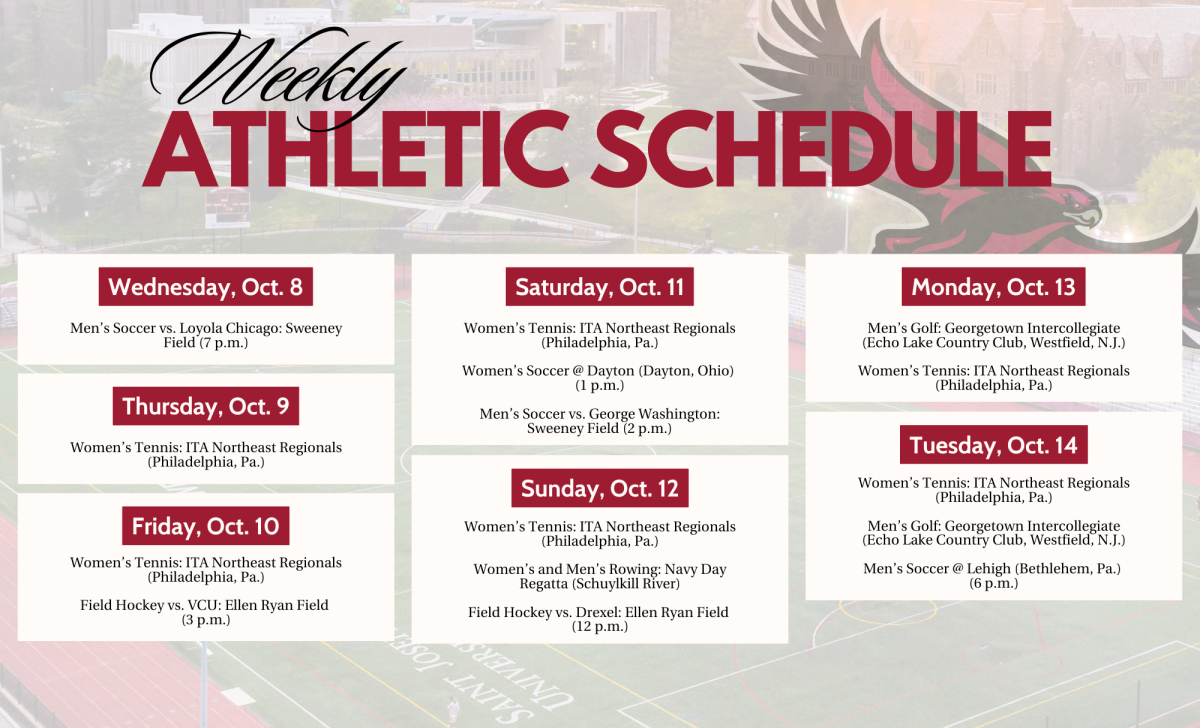In the past two weeks, there have been two events in the basketball world that facilitated national discussion about the role of women in sports. More specifically, women coaching in both the college ranks and in the NBA.
The Philadelphia 76ers promoted Lindsey Harding from her role as a scout, making her the first female assistant coach in franchise history on April 9. This move filled the position previously held by St. Joe’s men’s basketball Head Coach Billy Lange. Harding is the second full-time assistant coach in the NBA after Becky Hammon of the San Antonio Spurs.
In the following week, St. Joe’s alumna and University of Notre Dame women’s basketball Head Coach Muffet McGraw ’77 made comments that went viral regarding the gender gap in not only sports, but the world beyond during her team’s Final Four appearance.
“We don’t have enough female role models, we don’t have enough visible female leaders, we don’t have enough women in power,” McGraw said during her press conference on April 4. “Girls are socialized to know that when they come out, gender roles are already set. Men run the world, men have the power. When these girls are coming out, who are they looking up to to tell them that’s not the way it has to be? Where better to do that than in sports?”
McGraw’s monologue advocating for gender equality has become symbolic on a national level, as she related sexism in athletics to gender discrimination happening politically and historically. She spoke about the Equal Rights Amendment, how it was proposed in 1967 and still has not passed.
McGraw then pointed out that women only hold 23% of the House of Representatives and 25% of the Senate. She then circled her argument back to athletics, claiming it could be a starting point for improvement.

Jill Bodensteiner, J.D., director of athletics, who became a close friend of McGraw’s during their time at Notre Dame, said she was not surprised McGraw has risen to the forefront of the discussion surrounding gender roles.
“Those are the exact same conversations we would have on a regular basis,” Bodensteiner said. “I was proud in a couple of ways. One that she was a Saint Joseph’s alum, and two that she’s using her platform in a very productive way and is okay with people disagreeing with her.”
Bodensteiner said she too feels a certain obligation to help advance women in the world of athletics, using her status as one of 39 female athletic directors on the Division I level. She has hosted career nights for student athletes at St. Joe’s, where a career in coaching is emphasized. She is also traveling to Atlanta in May to do a professional development seminar for women’s basketball coaches.
“I do feel responsible, and I hope that it’s not just because it’s the right thing to do because I’m a woman,” Bodensteiner said. “I can’t for the life of me figure out why we have this narrative that men can coach women and women can’t coach men. That’s really distressing to me.”
Bodensteiner said one way to change that perspective is to grow the pipeline of female candidates, beginning with student athletes.
“At the end of the day, [McGraw’s] statement came back to student athletes, which is exactly what I’m all about,” Bodensteiner said. “So it comes back to what are we teaching these young women and how could we be using athletics to teach and develop them?”
St. Joe’s women’s basketball Head Coach Cindy Griffin ’91 has seen many of her former players go on to become coaches. Her coaching tree has grown during her 17-year tenure at St. Joe’s to have former players coaching at University of Connecticut, Northeastern University, University of Vermont, Drexel University and Loyola University.
“It’s a testament to how we run our program,” Griffin said. “It’s run like a family, and we say coaching is a way to give back to the sport that has given us so much.”
Assistant women’s basketball coach and St. Joe’s Athletic Hall of Famer Susan Lavin, who has been an assistant under Griffin for 15 years, said Griffin was instrumental in getting her into the coaching world. Griffin gave her the opportunity to continue playing professionally overseas while also being an assistant at St. Joe’s.
“It was the best of both worlds,” Lavin said. “[Griffin] really helped me learn the game from a coaching perspective and she’s someone who listens to everyone’s voice.

According to Griffin, the athletic community is trending closer to equality.
“The Sixers hired Lindsey Harding. That’s a step in the right direction,” Griffin said. “There’s a lot of men coaching men, you don’t see a lot of women coaching men, but you’re starting to see it, which is great.”
Lavin, who was a teammate of Hammon on the New York Liberty, agreed that great strides have been made in just the last decade alone.
“Becky [Hammon] was already a coach on the floor when I played with her, and Lindsay Harding is a great hire,” Lavin said. “When I began coaching, women coaching men was unfathomable.”
Bodensteiner said sexism is inherent in our culture and a systemic problem that will take time to fix.
“The very root our society is sexist,” Bodensteiner said. “There are assumptions made about what women can and can’t do, the objectification of women. I think young boys and girls grow up thinking that men should be in the position of power. The number of sexist comments that I’ve gotten since I’ve been in this job is absolutely mind boggling.”
Although the NBA has seen women take on a roll in coaching, with Hammon in 2014 and now Harding, the first two full-time female assistant coaches, Division I men’s basketball has yet to see a woman on the sidelines.
However, Bodensteiner admitted that during her search for the new men’s basketball coach, there was one woman in her top 10 candidates.
“There was consideration of a female for the men’s basketball job, and you can probably guess who that was,” Bodensteiner said.
















































